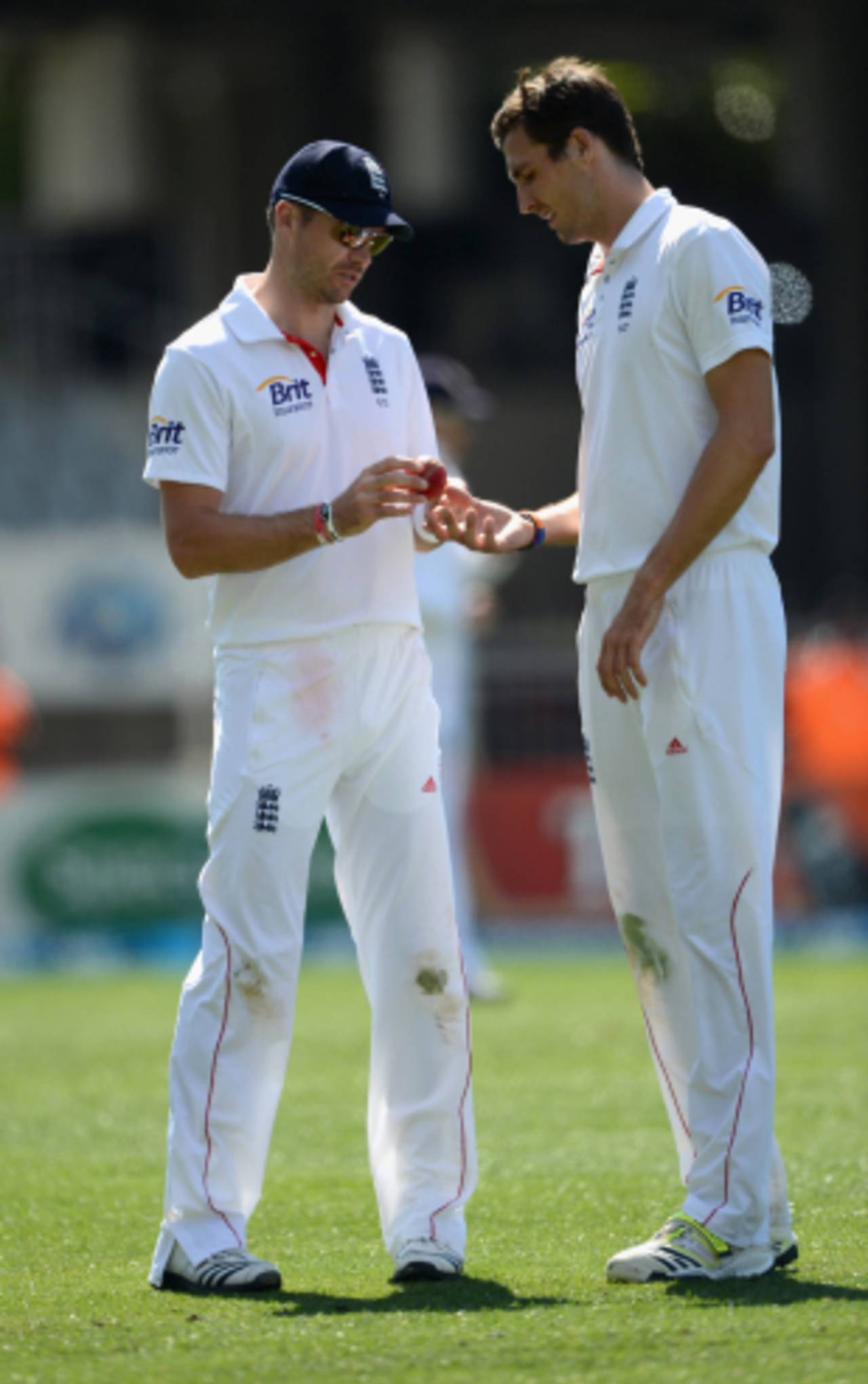During the last over before lunch,
James Anderson used every trick in the book to make sure it would be the final one of the session. He chatted with the captain, changed his field and aborted his run-up. It is something that any other team in England's position - being flogged senseless - would have done. However, that moment highlighted the depth of England's problems. It had come down to timewasting.
Even if they bat out the final day and leave with a share of the series - and that is unlikely following the late loss of Alastair Cook to a shot that completes a difficult match for the captain - there needs to be a tough critique of how they have played. It is the second time in little more than 12 months where England's Test credentials have taken a significant hit overseas.
Last year it was Pakistan in the UAE, which ended with the
3-0 whitewash, and now they are facing their first series defeat in New Zealand since 1983-84. Perhaps it is coincidental, but both those situations have followed the team achieving notable success - the Pakistan defeat followed, albeit five months later, beating India 4-0 at home to reach No. 1 in the world and this series has followed their victory in India before Christmas. Refocusing after achieving a significant goal appears to a problem.
England will have to be honest when they reflect on the series. They cannot hide behind clichés, previous glories or what the computers are telling them. To be fair, Graham Gooch spoke openly after the day, but the players also need to do the same. The performance in Auckland has, with a day left, been horrendously poor and it is not a one-off for the tour. In Dunedin, their second-day effort was as bad as it comes - 167 all out and New Zealand 131 without loss in reply - although that was put down to their poor starting overseas. Their finishing is not looking too flash, either, at the moment.
The first session on the fourth day at Eden Park was awful. It was the sort of scene witnessed during a 1990s Ashes Test when Australia would secure a huge first-innings lead, then forge ahead before leaving a massive target. For the second hour until lunch, England completely lost control, the heads dropped and they were taken apart by a 34-year-old batsman who averaged 20.93 before this series started. Shortly before New Zealand declared, there were nine fielders posted on the boundary for Brendon McCullum. The frustrations were clear when Stuart Broad showed his displeasure at a skier not being caught even though the two fielders converging had little chance of reaching it.
For the England attack on this tour, it has been a sobering experience. They have not come close to taking 20 wickets once. The weather played a part in Wellington, true, but they had 68 overs at New Zealand in the second innings and claimed two scalps. Gripes about the surfaces have not gone down well and perhaps it showed preconceived ideas. Going to India, the expectation is that bowlers will be made to work hard and England adapted magnificently. On this tour they have not responded to the challenge as effectively.
If England's bowlers are not careful, they could become a bit of a myth. There has been the occasional burst of brilliance over the last 12 months - Steven Finn
at Lord's, Monty Panesar
in Mumbai, James Anderson
in Kolkata and Stuart Broad
in Wellington - but they have been off-set by lengthy periods of struggle. The first day here, when New Zealand reached 250 for 1, was not a one-off. Last July, there was the small matter of 637 for 2
at The Oval and, in the following
Test at Headingley, South Africa made more than 400 after being put into bat. Then there was New Zealand's 460 in Dunedin.
Broad has been the pick of the quicks in this series. Anderson has been grumpy with a creaking body and Finn has not had the same the rhythm that he did in the one-day series off his shorter run, when New Zealand found him a handful. They remain fine bowlers, but their lack of penetration at times is a concern. David Saker, the bowling coach, is often lauded with much praise, and rightly so, but in this series something has been missing from his charges.
Then there is Panesar. He did not quite know what to do while McCullum and Peter Fulton were launching him into the stands. It was a tough role - the batsmen had free reign to attack - but Panesar has had precious little wicket-taking threat in the series. At times he has contained effectively, but it has only gone to reinforce, to a worrying level, the importance of Graeme Swann.
Not that the batsmen go home flush with pride, although some still have a final chance. Despite four hundreds in the series (two by Nick Compton and one apiece for Jonathan Trott and Alastair Cook) and the consistency of Matt Prior the bottom line is that they have slumped in two first innings - the time when a Test match is set up. Cook's decision at the toss in Auckland can be debated all you want, but England should not have been bowled out for 204. His dismissal, with less than five overs of the day remaining, driving out of the rough against a part-time offspinner, was apt for a game he will want to the forget. That, though, cannot be allowed to happen.
